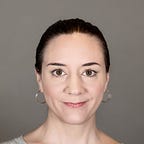Eureka (I have found it)
For some people, the fate of our planet comes first. They are passionately interested and motivated to change something. Some deny climate change, others are already feeling its effects, and many are concerned about the changes on our globe, but do not believe they can influence what is happening.
Nevertheless, united in a community of destiny, we are daily fighting for our place in the world and struggle with the dangers of error and failure. What can we do? What is right or wrong? In modern life, ethical contemplation and self-examination find little consideration, because they cost time and effort. By definition, an ethical person is a sage who possesses the fine tongue and the refined organ to appreciate the value of life.
Socrates, one of the most famous philosophers of ancient times and the first great ethicist, was convinced that this intuition is existent in every human being and that the correct assessment of a situation generates the appropriate action. Real cognition, however, can only be acquired in the debate with the opposite. Socrates moved outdoors, engaged people in conversations and tried to obtain deeper understanding together in dialogue. With mental obstetrics, the so-called “mäeutik” (art of the midwife), he helped his counterpart to bring answers and insights to light through a skillful conversation. As a midwife helps to give birth to children, he helped his opposite to give birth to new thoughts. He asked questions until the other could draw conclusions by himself, but only preliminary ones, because they could be challenged again at any time. After his own reflection, Socrates came to the conclusion that “he knew just one thing — namely that he knew nothing.”
It seems that a different assumption is predominant today. It makes us believe that we can get insights through quickly available information: “I know I could know everything.” At one glance or click. We ask Siri or give orders to Alexa. Hey Google: Eureka!
The places of dialogue have shifted. The debating clubs of modern times, the social networks, offer space for dialogues without real counterparts, for social communication, modern management of relationships and permanent self-assurance. This is neither right nor wrong, but it encloses the danger for every individual person that she or he has to determine certain views too hastily. The follower doesn’t wait long. Is the complexity of human conversation getting lost? Are we losing the skills of listening and asking? Do we lack the leisure for a personal conversation? Do we still run the risk of realizing, after a long period of errancy and turmoil, that we know nothing or that we see the world with different eyes? We should be ready for personal conversation. It makes us think, inspires us with new ideas and encourages us to take action and change something.
